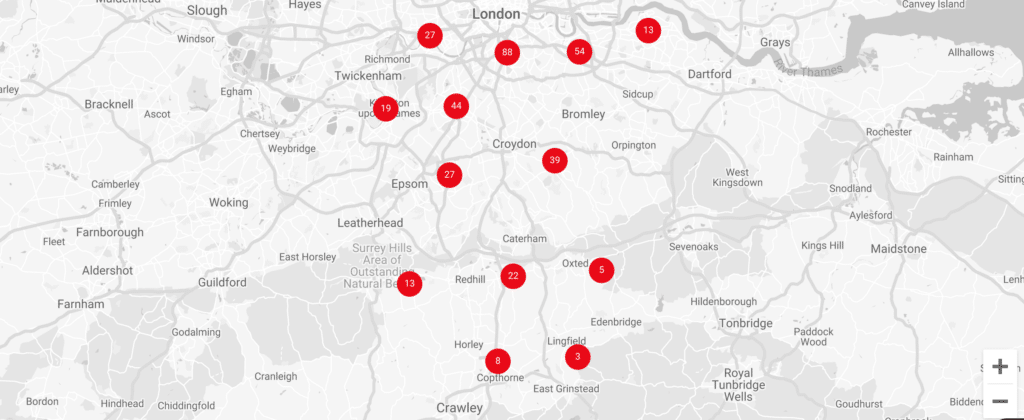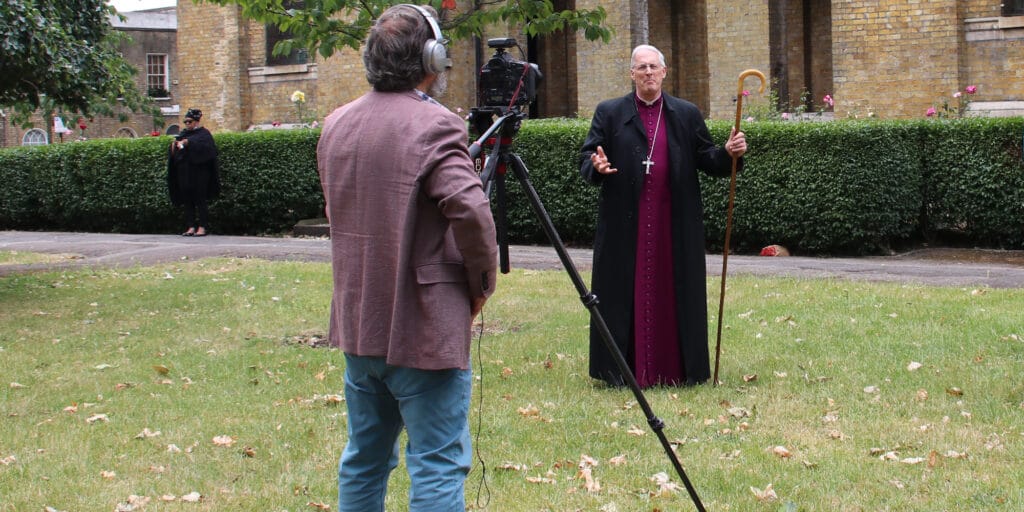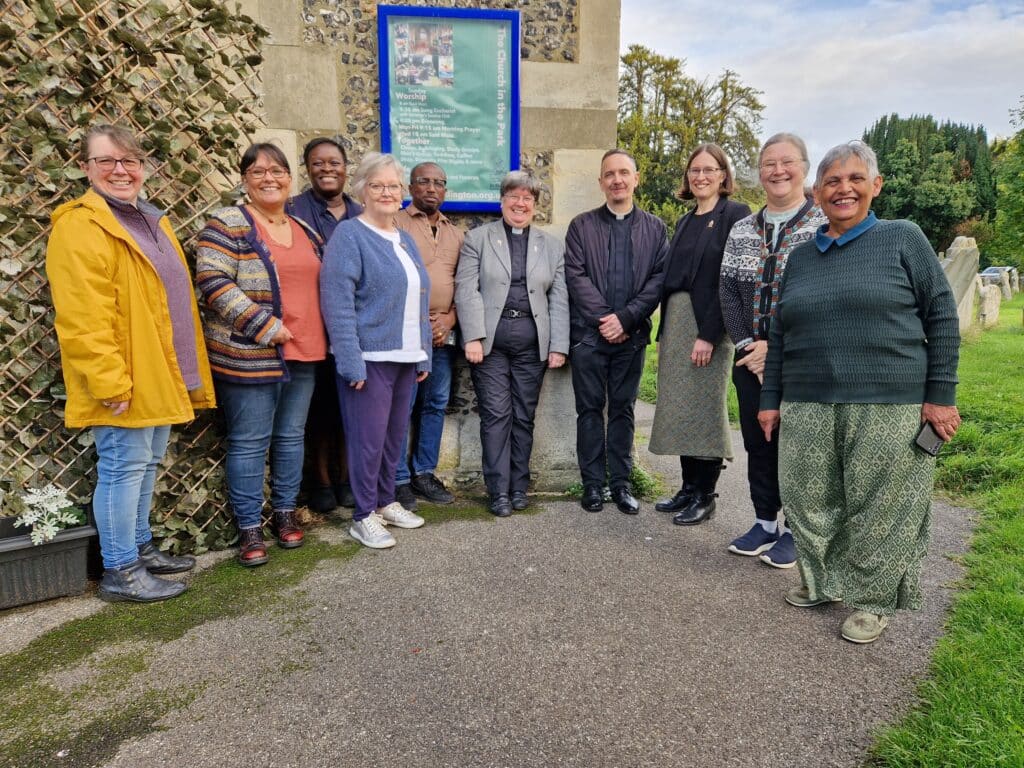Useful information
Patron
The Bishop
Episcopal Area
Croydon Episcopal Area
Deanery
Croydon Addington Deanery
Archdeaconry
Croydon Archdeaconry
Details of the Church
Built
1935-36 / 1973
Architect
JE Newberry & CW Fowler / SWJ Smith
Listing
NL
The development of West Wickham between the two World Wars necessitated the formation of two new parishes – St Francis of Assisi and St Mary of Nazareth. The parish of St Francis was formed as a conventional district in 1933, out of the old parish of West Wickham. The chapel of St Augustine in the High Street was then re-dedicated to St Francis and utilised until the new church was built. The small chapel served for some years as a church hall. The present church hall, adjacent to the church was built in 1960 on the site originally earmarked for a vicarage.
St Francis church consists of a nave, chancel, south aisle, north aisle (added 1973) , vestries and south chancel aisle. The nave is divided into five bays by lofty slender stone pillars with brick arches and a small clerestory. The walls are faced externally and internally with cream coloured sand-lime bricks. The open timber roofs are of low pitch, and of British Columbian pine. The seating, including the chancel, can accommodate 590. The wooden rood screen was salvaged from a bombed church at Folkestone. The tower adjoins the chancel on the south-east. The church was badly damaged during the 2nd World War, resulting in the loss of the East window, the organ and part of the north wall. The temporary East window was replaced in 1980 with a double-glazed window showing St Francis with his animals. It was designed by Mark Jones of Tudor Glass Ltd. In 2010 a new stained glass East window was introduced.
The entrance is through a south porch at the western end of the church. This porch contains glass windows given by a parishioner in 1954. The style of the building is late fifteenth century and early sixteenth century English Gothic, freely treated and adapted to modern methods.
There is a carillon of eight bells which are chimed.
Ornamental cast iron railings outside the church, which came from the old Church House at Westminster, were saved from requisition during the Second World War on artistic and historic grounds.




